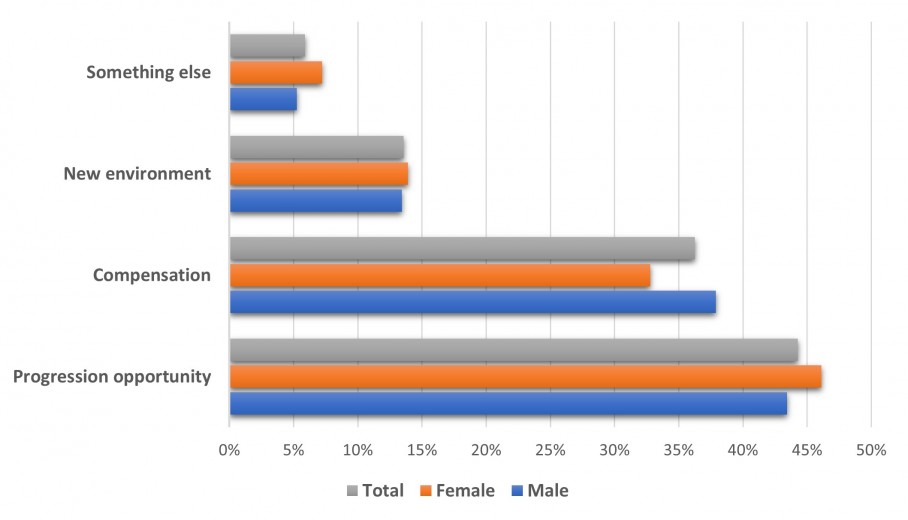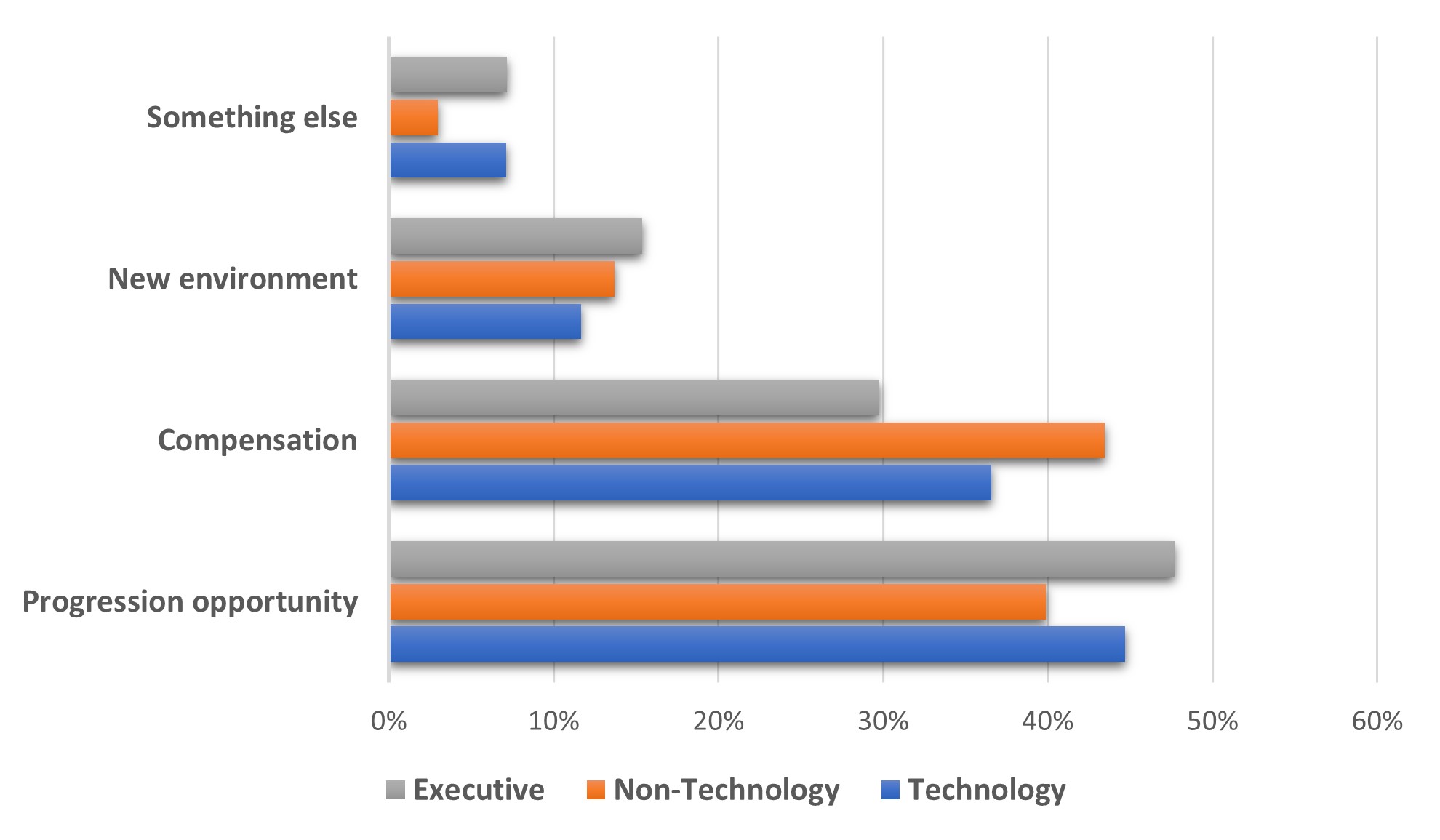Why do employees leave?

Live recruitment market data to help you make decisions
A 60 second snapshot to take the temperature of professionals in FinTech, Financial Services & DeFi – delivering data and insight to help you make decisions.
Ever wondered why the top driver is for people to leave your organisation? No doubt, it can often be a mix of factors but data suggests ‘Progression’ is the main reason, particularly at the Executive end (48%). For more junior, non technology staff, compensation is the main reason (43%).
Check out our main findings and what you can do to retain and attract talent below.
As always, our polls cover all levels and both technology and non technology roles. We received 560 responses across FinTech, Traditional Financial Services and DeFi and our results are broken down into:
- Executive (VP, Director, Head of Function, CXO, etc.)
- Non Technology (operations, corporate services, sales, risk, compliance, etc. below Executive Level)
- Technology (all areas of technology from build to test below Executive Level)
This week we asked:
“What is the top reason you look to make a career move?”
The Results

By Sector/Level

Key take aways?
- Junior, non technology, talent are most likely to leave due to compensation (43%), closely followed by a perceived (or real!) lack of progression opportunities (40%)
- For both technology and Executive cohorts, ‘Progression Opportunities’ were sighted as the top reason for moving on
- Females are less likely than men to leave just because of compensation (33% Vs 38%) and value progression more (46% Vs 43%)
- 14% of people overall move just to change environment – ie: the same job somewhere else
What can you do?
- Progression is most important for people – develop multiple progression pathways for key talent… progression is not just moving to a more senior role, it also covers learning and development into new areas – if in doubt, ask what progression means for current employees
- Use progression opportunities as a selling point when meeting with prospective candidates – demonstrate this with examples of people who have progressed in your organisation – you can also use these stories to attract talent
- Ensure your compensation is well benchmarked to the market and adjust as necessary – the best benchmark is the cost of replacement…
We are asking weekly questions to our pool of professionals to give you live market info to help making decisions.
Check out our recent surveys including:
- How will talk of recession impact the recruitment market?
- If I was told to come back to the office 5 days per week I would…
- Employees expect compensation for high inflation
- Are you accessing the full talent market? Probably not…
- Do employees look for internal opportunities before leaving?
- Over 40% of people are likely to accept a counter-offer…. Really!?
If we can help solve any of your talent headaches – get in touch – paul@ttrmail.com